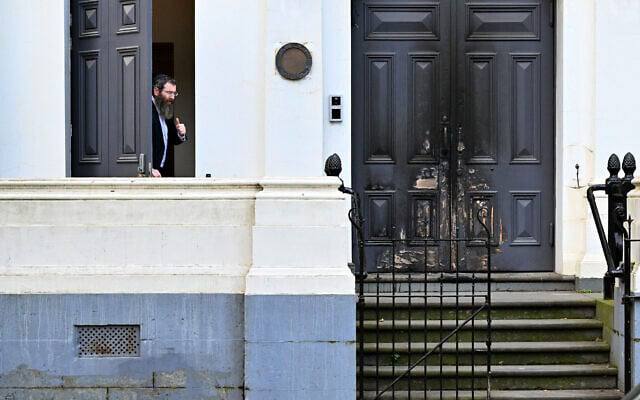UPDATES
Past and future colliding on Iranian nuclear ambitions
August 21, 2009 | AIJAC staff
Update from AIJAC
August 21, 2009
Number 08/09 #06
This Update focuses upon Iran and the September deadline set by the United States for the Islamic Republic to agree to enter negotiations over its nuclear weapons program. US Secretary of State Hillary Clinton admitted <http://online.wsj.com/article/SB10001424052970203863204574348843585706178.html> in an interview this week that she does not trust the Iranian regime and would not let Iran string out negotiations without a horizon, but she also pledged that America was not pursuing regime change.
First up, esteemed Middle East analyst Barry Rubin writing on the eponymous Rubin Reports believes that Iran will not deviate from its present rejectionist outlook. He highlights the importance of the visit to Teheran this week by Syrian President Bashar al-Assad to congratulate Ahmadinejad <http://www.ynetnews.com/articles/0,7340,L-3764362,00.html> . Rubin says naïve politicians and opinion makers need to wake up and realise that the benefits of the Iranian alliance for Syria far outweigh anything a weakened United States or Europe can offer. By offering ever more concessions to merely coax Iran and Syria to the negotiating table, the West is confirming in the minds of Ahmadinejad and Assad that rejectionist hardline policies succeed in softening up the West for carrots, Rubin argues. For this important reality check on the future of the Middle East, CLICK HERE <#Article_1> .
Next up, veteran British journalist Con Coughlin warns of the dangers of complacency in the West’s growing resignation over the Iranian nuclear weapons program. He recounts his attendance at a June conference of Iran experts in Italy at a villa where former West German Chancellor Konrad Adenauer “developed his vision of a united Europe, where the catastrophic upheavals of two world wars would be consigned to the history books”. Coughlin laments the fact that the world is potentially recasting last century’s catastrophes anew by slowly but surely acquiescing to Iran acquiring nuclear weapons. He noted that conference goers, including former senior Iranian military officers and defence and intelligence officials, doubted a positive response from Iranian President Ahmadinejad to Washington’s offer of negotiations. To read his gloomy prediction for the Middle East and the rest of the world if Iran gets its way, CLICK HERE <#Article_2> .
<#Article_3> Finally, Washington Institute fellow and former senior adviser in the Treasury Department’s Office of Terrorism and Financial Intelligence Michael Jacobson and Foundation for Defense of Democracies Executive Director Mark Dubowitz explain how sanctions against Iran’s energy sector are the West’s most potent weapon to pressure it to cease its nuclear weapons program. A <#Article_3> bill passed in Washington authorising the US president to sanction foreign companies involved in selling refined petroleum to Iran would target Iran’s economic Achilles’ heel which is the country’s dependence on foreign gasoline imports for up to 40% of its domestic needs. They point to the success the last US administration had in targetting Iran’s banks using this economic weapon. For this fascinating and important piece on attempts to stop Iran, CLICK HERE <#Article_3> .
Readers may also be interested in:
-
George Jonas in the National Post characterises the Obama Administration’s position on Iran having nuclear weapons as essentially nonchalant <http://www.nationalpost.com/story.html?id=1906647&p=1> , warning that the White House believes only neo-cons are worried about a nuclear Iran.
-
Also uncertain is the role Europe might play in pressuring Iran or acting as a get out of jail free card. German Chancellor Angela Merkel played hardball yesterday, warning that Iran will face more economic sanctions <http://televisionwashington.com/floater_article1.aspx?lang=en&t=2&id=13291> if it misses the September deadline. However, Berlin-based journalist Benjamin Weinthal warns that the European Union did 14.1 billion euro worth of trade with Iran last year <http://www.tnr.com/politics/story.html?id=3c67cacb-d273-4ff8-a5ef-98f57b5a831c> , Germany and Iran have a special economic relationship and the gap between rhetoric and action will be telling.
-
On Tuesday, Iranian President Mahmoud Ahmadinejad released the names of people he wants in his new cabinet. Analysts have said the nominees – including three women – reflect Ahmadinejad’s weakened position after his disputed re-election. The list has met widespread opposition in the Majlis – Iran’s Parliament – with influential Parliamentary Speaker Ali Larijani reportedly criticising the nominees as lacking experience and expertise, and will face significant opposition when the Parliament votes. See here <http://www.voanews.com/english/2009-08-20-voa27.cfm> and here. <http://www.timesonline.co.uk/tol/news/world/middle_east/article6804550.ece>
-
A high-level Iranian nuclear official wants the International Atomic Energy Agency (IAEA) to ban any military strikes on nuclear reactors <http://www.google.com/hostednews/afp/article/ALeqM5jBxCdcruTWhVNSErCUWIY2XSvVfg> around the world.
-
In a clear sign that Saudi Arabia does not believe Iran’s nuclear program will be halted anytime soon, it too has announced a nuclear program. <http://www.jpost.com/servlet/Satellite?cid=1249418661994&pagename=JPost%2FJPArticle%2FShowFull>
-
Haaretz reports that Israel is accusing outgoing IAEA Director-General Mohammed ElBaradei of deliberately withholding from publication vital evidence found by his own nuclear weapons inspectors showing Iran is seeking information about weaponisation <http://haaretz.com/hasen/spages/1108564.html> .
-
-
Meanwhile, ahead of a forthcoming IAEA report, Iran allowed IAEA inspectors entry last week to its new heavy water reactor currently under construction at Arak <http://www.telegraph.co.uk/news/worldnews/middleeast/iran/6062883/Iran-allows-UN-to-resume-nuclear-inspections.html> . This was the first such visit by IAEA inspectors to the site this year.
-
Nearly eight years after the terror attacks on the World Trade Centre and the Pentagon on September 11, 2001, al-Qaeda inspired and affiliated terrorist plots are proliferating around the globe <http://www.weeklystandard.com/Content/Public/Articles/000/000/016/851tqrch.asp.> according to Stephen Schwarz in the Weekly Standard. Also in the Weekly Standard, former Islamist supporter Daveed Gartenstein-Ross analyses past, present and future trends of terrorism and the increasing links with transnational crime groups <http://www.weeklystandard.com/Content/Public/Articles/000/000/016/849isgae.asp> .
-
Barry Rubin analyses new polling data co-released by Palestinians and Israelis that suggests both peoples distrust the Obama Administration. <http://rubinreports.blogspot.com/2009/08/poll-shows-obama-administration.html> Rubin cheekily writes that President Obama has truly achieved even-handedness in his Middle East policy.
-
Despite low voter turnouts in some parts of Afghanistan and the threat of terror attacks by Taliban forces, yesterday’s second presidential elections held there since the US-led coalition in 2002, have been labelled a success. See here <http://www.ft.com/cms/s/0/7c9ed16c-8d3e-11de-a540-00144feabdc0.html> .
-
The overnight release from a Scottish prison of convicted Lockerbie bomber Abdel Basset al-Megrahi has caused a wave of condemnation over the decision. Al-Megrahi was released on the grounds he has terminal cancer and only months to live. Critics of the decision claim he was released in return for Libya’s guarantee of oil shipments to the UK. A good primer on the issue with links to various news stories and opinions can be found on the Atlantic Monthly’s website here <http://atlanticwire.theatlantic.com/read-more.php?id=770> . The sister of a Lockerbie victim writes of her reaction to the al-Megrahi’s release <http://www.guardian.co.uk/commentisfree/2009/aug/21/abdelbaset-al-megrahi-lockerbie-bombing> . Also of interest is the hero’s welcome al-Megrahi received upon his return to Libya in Colonel Gadaffi’s private jet <http://www.msnbc.msn.com/id/32487856/ns/world_news-terrorism/> .
Syria and Iran: Together More Than Ever and Confident that They’re Winning
Barry Rubin, August 20
One can learn a great deal by analyzing the visit of Syrian President Bashar Assad to Iran, August 19. Statements made by Assad and Iranian President Mahmoud Ahmadinejad tell a lot about the allies’ strategy which seems to escape Western observers.
The first point is that they indeed are close allies. I would estimate that analyses by Western “experts” and in the media—analyses, not news reporting—that Syria can be pried away from Iran outnumber explanations that this is impossible by about ten to one. This mistaken conception is also the official policy of the United States and France, perhaps Britain as well.
To understand why Syria won’t be split from Iran, read this.
Note that Secretary of State Hillary Clinton said this recently:
“Given what’s been going on in Iran and the instability that appears to be present there, it may not be in Syria’s interest to put their eggs into that basket.”
Well, Assad apparently doesn’t agree with her. Perhaps she should listen to what he’s saying and watch what he’s doing in order to draw the opposite conclusion.
Assad says: “I think that what happened in Iran is an important thing and a big lesson to the foreigners, and therefore they are not very satisfied. I believe the Iranian people’s reelection [of Ahmadinejad] is another emphasis on the fact that Iran and Syria must continue the regional policy as in the past.”
In other words, he correctly views Ahmadinejad and the regime as a whole as even stronger after the election. Dictators respect repression; they aren’t impressed by an opposition which stages demonstrations and then whose leaders get thrown into prison. That’s especially true when they don’t even receive Western support.
Watching the gradual concessions made by the West to the Iran-Syria bloc, and its evident fear of confronting them, Assad stated that he was confident the international community will accept Iran and Syria more than it had done in the past.
Note also that the two countries are very consciously coordinating strategy in a war against Western interests and the relatively more moderate Arab regimes, a conflict that Western governments don’t even perceive as existing:
“Iran and Syria are on the same front, and any political event is an opportunity which must be used at the best way possible while helping one another.”
Iranian Spiritual Guide (and the real leader of the country) Ali Khamenei agreed: “The result of this unity is evident in the Palestine, Lebanon, and Iraq issues and also in the entire region.” The tide is in favor of the Resistance, he added, referring to the combination of Iran, Syria, Hamas, Hizballah, Iraqi insurgents, and other members of the radical alliance.
What does this mean?
Palestine: Hamas is entrenching itself further, while European governments seem a bit less willing to isolate it. There is no prospect of bringing down that regime and the West isn’t trying to do so. He probably assumes, though is probably wrong, that Hamas is steadily making gains in subverting Fatah’s rule on the West Bank.
Lebanon: While Hizballah didn’t win the last election, it is clear that the Iran-Syria client increasingly owns the country. The country’s president is fairly subservient to Iranian and Syrian influence; the tribunal investigating Syrian terrorism in Lebanon seems pretty dead itself. Hizballah seems on the verge of re-establishing veto power in the government, and the most courageous opponent of Iran-Syria influence, Walid Jumblatt, has changed sides (or at least gone to neutrality).
Iraq: The U.S. forces are withdrawing. Iran’s money, agents, and clients seem to be able to operate freely, though Tehran is nowhere near taking over the country
Khamenei also said something truly shocking. Remarking that Syria’s improved relations with Iraq (a country against which it is daily sponsoring terrorist attacks), he added that unity [the translation probably should say “alliance”) between Iran and Syria, on one hand, and their neighbors Iraq and Turkey would benefit the region.
What is this? He is showing Iran’s longer-term plan to pull Iraq (under a more friendly faction) and Turkey (currently ruled by an Islamist-oriented regime) into a broad alliance. That statement should send shock waves throughout the West, cause intelligence analysts to pick up the phone and inform someone who has Obama’s ear.
Iran and Syria, along with their clients, are at war with America, and the U.S. government doesn’t even know it.
That’s why Khamenei said, “America’s blade has become blunter in the region.”
He’s right. That’s why if anyone is worried about putting all the eggs in one basket nowadays it is America’s Arab partners. The fact that the United States is perceived as weaker and foolish in the region is far more important than the fact that Obama might be more popular in public opinion polls.
With a U.S. government so intent on apologizing to everyone, all but ruling out the use of force or power politics, and apparently—in Iran’s perception—afraid to confront its enemies, they’re concluding in Tehran and Damascus, as Ahmadinejad put it:
“Today the world has realized that Western theories are not working anymore and that is why it needs the help and cooperation of Syria and Iran.”
Barry Rubin is director of the Global Research in International Affairs (GLORIA) Center and editor of the Middle East Review of International Affairs (MERIA) Journal. His latest books are The Israel-Arab Reader (seventh edition), The Long War for Freedom: The Arab Struggle for Democracy in the Middle East (Wiley), and The Truth About Syria (Palgrave-Macmillan).
Back to Top <https://aijac.org.au>
————————————————————————
Ignoring Iran’s nuclear plan would be the West’s greatest blunder
Con Coughlin
Telegraph (UK), August 13
The West has given up on its attempts to prevent Iran acquiring an atom bomb – and the result will be a nuclear arms race that threatens not only the future of the Middle East, but the entire world.
This, at least, is the apocalyptic view that now appears to be taking root among some of the world’s leading Iran experts, as we approach the make-or-break moment next month when Tehran’s newly re-elected president, Mahmoud Ahmadinejad, decides whether he is prepared to enter into a constructive dialogue over his country’s illicit pursuit of nuclear technology.
To judge by the mood of the delegates participating in a conference on Iran I attended this week, in the aftermath of June’s bitterly contested election, the omens do not look good.
The meeting took place in a beautiful Italian villa overlooking Lake Como, once the summer residence of Konrad Adenauer, the late German chancellor. It was there that he developed his vision of a united Europe, where the catastrophic upheavals of two world wars would be consigned to the history books.
How ironic, then, that the considered view of those participating in discussions organised by Adenauer’s foundation was that, unless Iran can be prevailed upon to rein in its nuclear ambitions, the world is heading towards a new era of calamitous conflict.
Among those participating were diplomats who had served in Tehran under both the Shah and the ayatollahs, former senior Iranian military officers and defence and intelligence officials. And the overwhelming consensus was that the chances of Mr Ahmadinejad’s responding positively to Barack Obama’s appeal to Tehran to “unclench its fist” are remote indeed.
Iran has been given until September’s meeting of the United Nations General Assembly to provide a formal response to Washington’s offer. But no matter how hard America tries to convince the Iranian leadership that its intentions are honourable, all the indications suggest that Mr Ahmadinejad is in no mood for compromise.
From the moment that he was proclaimed the winner in the highly contentious presidential poll, he and Ayatollah Ali Khamenei, the country’s supreme leader, have publicly defended Iran’s right to maintain its pursuit of nuclear technology. Only last week, Mr Khamenei launched yet another attack on the West during the presidential inauguration ceremony, describing the election as a “vote for the fight against arrogance and brave resistance to the international domination-seekers”.
Much of the blame for the failure to coax Tehran to the negotiating table, or so it was argued this week, lies with Mr Obama and his unwillingness to take a hard line with the ayatollahs. At the height of the pro-reform demonstrations in June, when the regime’s guardians launched a brutal assault to suppress the protests, he refused to be drawn into an open condemnation of their tactics.
While the Obama administration is under no illusions that the election was fraudulent, the White House nevertheless believes that is in America’s long-term interests to overlook that unpalatable fact and keep the door open for negotiations.
But what Mr Obama and his Iran team fail to appreciate is that this policy of appeasement is seen by the mullahs in Tehran – rightly – as a sign of weakness. If the Americans are prepared to sit idly by while the regime brutally suppresses the legitimate democratic aspirations of the Iranian people, why should Iran’s leaders be unduly concerned by threats of possible retaliation over their nuclear programme?
Moreover, a mood of defeatism appears to have settled over the White House. As one senior Obama adviser recently remarked: “It wouldn’t be easy to live with an Iran that’s a virtual nuclear power, but at the end of the day, it’s not a complete disaster.” A similar air of resignation has taken hold in Europe, which until recently had taken the lead role in negotiations over Iran’s uranium enrichment. Concerns over the state of the global economy, and the awareness that Iran is close to acquiring the technological capability for an atom bomb, has weakened the Europeans’ resolve to confront it. Only Britain and France have any appetite for further tough talking.
With political will diminishing in the West, the most likely outcome, or so it is now argued, is that leading Arab states, such as Saudi Arabia, Syria and Egypt, seek to acquire their own nuclear arsenals. The Saudis helped to finance Pakistan’s nuclear weapons programme, while the Syrians and Egyptians are known to have their own advanced research projects. Add to this the massive nuclear stockpile that is already at Israel’s disposal, and it is easy to understand why a poly-nuclear Middle East – to use the technical phrase – would pose the greatest threat to world peace seen since the creation of the Iron Curtain.
But the doctrine of mutually assured destruction, which could be relied upon during the Cold War to prevent a nuclear holocaust, cannot be applied to a region in which national pride and personal honour often take precedence over the more basic human instinct for self-preservation. It’s enough to make Konrad Adenauer turn in his grave.
————————————————————————
Smart Sanctions Can Work Against Iran
By Michael Jacobson and Mark Dubowitz
Wall Street Journal, August 13
After a fraudulent election and its brutal aftermath, Iranian Supreme Leader Ali Khamenei and his junta must now be persuaded that their pursuit of nuclear weapons will be unbearably costly.
The Obama administration appears poised to implement what Secretary of State Hillary Clinton has called “crippling sanctions” if Iran fails to come to the negotiating table. Sens. Evan Bayh, Joe Lieberman and Jon Kyl, and Howard Berman in the House, have developed sanctions legislation targeting Iran’s economic Achilles’ heel—the regime’s dependence on foreign gasoline imports for up to 40% of its domestic needs. The bill would provide the president with the authority to sanction foreign companies involved in selling refined petroleum to Iran, including insurance and reinsurance companies. With the administration’s approval, it would be quickly passed and signed into law.
Existing Treasury Department efforts to persuade financial institutions to stop their Iranian business offer the model. Treasury leverages what bankers, insurers and energy traders all understand—the price of risk.
Treasury relies on “smart sanctions” that focus on actors engaged in dangerous or illicit activity that violates international law norms. Since 2006, it has designated more than 40 Iranian entities involved in supporting the regime’s WMD-related and terrorist activities, including state-owned banks.
The foreign financial institutions that terminated or reduced their business with Iran over the past three years were not legally bound to comply with U.S. sanctions. But after Treasury revealed Iran’s extensive use of deceptive financial practices and front companies, foreign bankers complied. The benefits of their Iranian business were outweighed by the costs of being linked to bad actors, as well as the real risk of losing access to U.S. financial markets.
Financial institutions witnessed what happened to ABN Amro—the Dutch bank fined $80 million by the U.S. in 2005 for having an inadequate compliance program with respect to the U.S.’s Iranian and Libyan sanctions under the Bank Secrecy Act.
The same approach can be used with Iran’s refined petroleum suppliers. The Swiss-Dutch energy giants Vitol and Trafigura, the Dutch multinational Shell, the Indian multinational Reliance Industries, the Swiss trader Glencore and the French energy powerhouse Total can, with the right amount of diplomatic muscle, be persuaded that it’s not in their best interests to continue their refined petroleum exports to Iran.
The British, German, Norwegian and Japanese insurance and reinsurance companies that underwrite the gasoline shipments to Iran are also prudent and, given the nature of their business, understand the management of risk better than most.
The real challenge is understanding who are the real beneficiaries in the opaque Iranian energy industry. The links between Iran’s Islamic Revolutionary Guards Corps (IRGC), blacklisted by the U.S. in 2007, and the Iranian oil and gas sectors are well documented.
More specifically, there’s long been a close relationship between the National Iranian Oil Company and the IRGC, particularly its main construction arm, Khatam ol Anbia (Ghorb). In 2006, for example, Ghorb received more than $7 billion in contracts and has built numerous oil and gas pipelines.
Given the strategic importance of gasoline to the Iranian economy and military, and the opportunity for lucrative profits from a gasoline trade estimated at $6 billion to $9 billion annually, IRGC entities are likely involved either directly in this gasoline trade or through affiliated Iranian entities.
For these companies, recent developments in Washington do not augur well. The sanctions legislation in Congress has overwhelming bipartisan support and policy makers are preparing for a busy autumn in the hope of forestalling a possible Iranian nuclear winter.
If the legislation is passed, it’s anyone’s guess who could be the first energy trader or insurance company sanctioned. Regardless, none of the refined petroleum players should want to be the next ABN Amro, facing damaging revelations and perhaps worse for trading with designated entities.
The world’s bankers understood that the risk of trading with Iranian designated entities is not one worth taking. Iran’s refined petroleum suppliers and insurers should draw the same conclusion.
Mr. Jacobson is a senior fellow at the Washington Institute for Near East Policy. Mr. Dubowitz is the executive director of the Foundation for Defense of Democracies.
Tags: Iran





